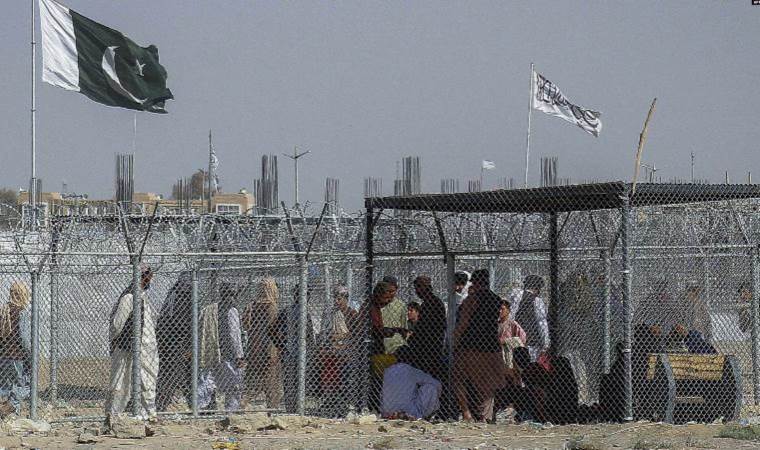Kabul: 8 killed in Pakistan airstrikes on Afghanistan
Pakistani military struck homes in two provinces of Afghanistan in pre-dawn attacks on Monday. Afghan Defense Ministry says its forces hit Pakistani military installations in response.

Pakistani military aircraft struck homes in two provinces of Afghanistan in pre-dawn attacks on Monday, interim Afghan spokesman Zabihullah Mujahid said.
Kabul said its forces retaliated against the airstrikes by hitting Pakistani military installations.
Condemning the attacks, Mujahid said eight people, including three children and five women, were killed due to the aerial strikes in the southeastern Paktika and Khost provinces.
The cross-border aerial strikes were reported at around 3.00 a.m. (22:30 GMT Sunday), he added.
No official statement has been released by Islamabad on the alleged attacks, which Mujahid called a "reckless violation of Afghanistan's territory."
Mujahid stressed that Afghanistan would "not allow anyone to invade its territory" and called on Pakistan to stop "wrong policies… and spoiling relations of the two neighboring Muslim countries."
The airstrikes came after at least seven Pakistani troops were killed by militants in North Waziristan's Mir Ali area on Saturday.
Islamabad accuses Afghanistan of failing to prevent militants from the outlawed Tehreek-e-Taliban Pakistan (TTP), a conglomerate of various militant groups, from carrying out attacks in Pakistan before returning to Afghanistan for refuge. Afghanistan has denied the charges.
It was in April 2022 when Pakistan had launched cross-border air strikes against the alleged militants of the banned group.
"The person named Abdullah Shah, who the Pakistani side claims was targeted in the incident, is in Pakistan," Mujahid claimed.
PAKISTANI MILITARY INSTALLATIONS HIT
In a separate statement, Afghanistan's interim Defense Ministry described the Pakistani airstrikes as an "aggressive operation," and said border forces "of the Islamic Emirate of Afghanistan retaliated by targeting Pakistan's military installations along the imaginary border with powerful weaponry."
Afghanistan does not recognize the Durand Line – the de facto border region between the two countries – on the grounds that it was created by a British colonial regime “to divide ethnic Pashtuns.”
The 2,640-kilometer (1,640-mile) border was established in 1893 as part of an agreement between India under British colonial rule and Abdur Rahman Khan, the then-ruler of Afghanistan.
Pakistan and Afghanistan share 18 crossing points and the most frequently used for trade and people movement are Torkham and Chaman, which connect Pakistan's southwestern Balochistan province to Kandahar, Afghanistan's southern province.
The country's defense and security forces "remain prepared to counter any further aggressive actions and are committed to safeguarding their territorial integrity under all circumstances," warned the Afghan Defense Ministry.




